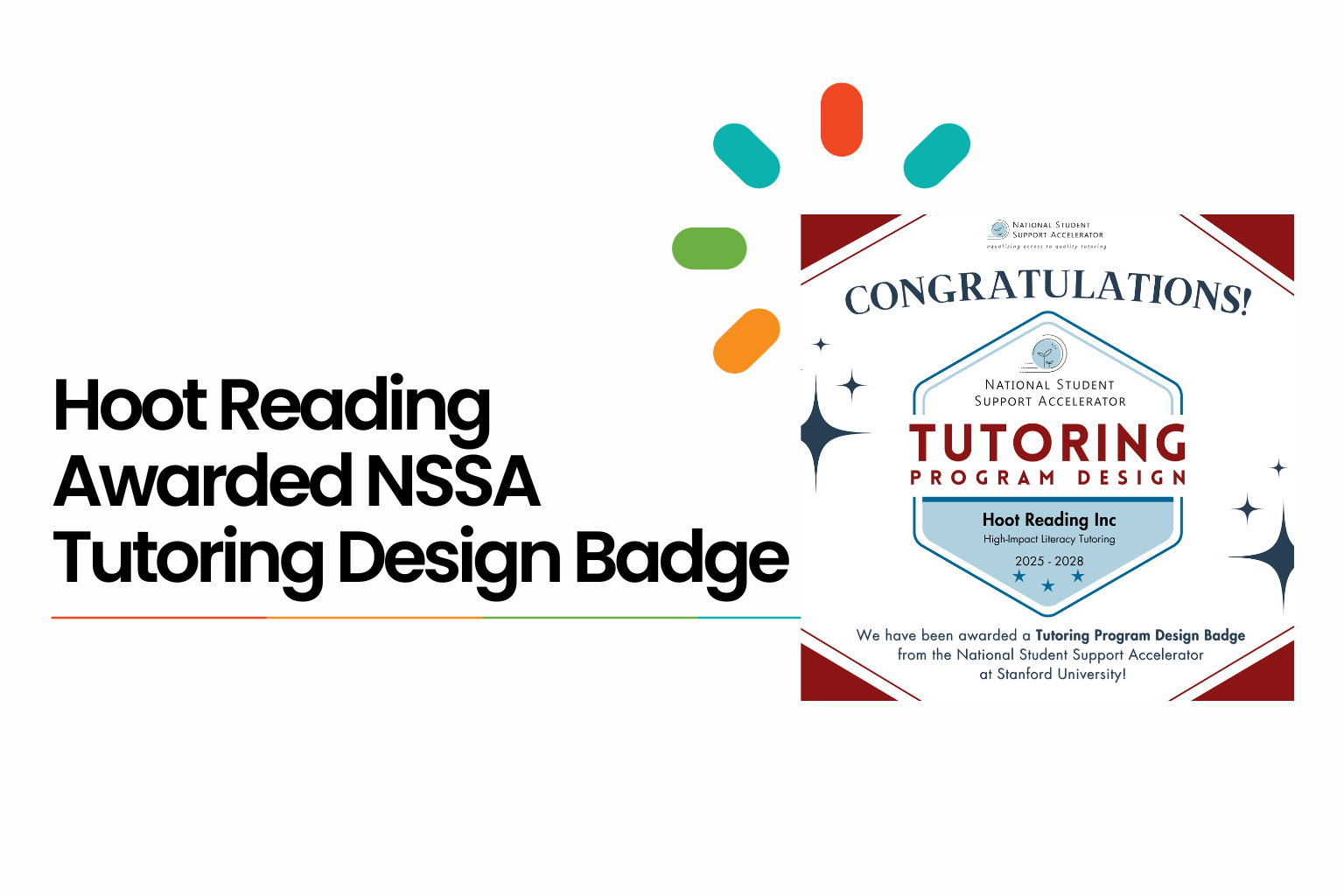After a thorough evaluation by a third-party team of education experts with the National Student Support Accelerator (NSSA), Hoot Reading was awarded the highly sought-after Tutoring Design Program Badge. This Badge is an indicator for schools and districts of the quality and alignment of a program, as well as its adherence to evidence-based practices.
The Badge is awarded to tutoring programs that meet rigorous quality requirements and align with the NSSA’s Tutoring Quality Standards. These standards are divided into categories that research has shown improve student outcomes when integrated into high-impact tutoring. Hoot Reading’s tutoring fully aligns with the standards in many categories, including tutor selection, program effectiveness, high-quality instructional materials, dosage, and data privacy, among others.
Hoot Reading is committed to providing all children with research-backed, high-impact literacy tutoring. The dedication of our team and tutors, combined with individualized instruction and safe, innovative technology, enables us to meet students where they are and transform them into skilled, independent readers. Find us on the NSSA's Tutoring Database to learn more.
About Hoot Reading
Hoot Reading is the leading online tutoring service delivering 1:1, structured literacy instruction with qualified teachers. Grounded in the Science of Reading, Hoot’s data-driven approach helps students make rapid gains, improving literacy skills 3x more than their peers. Hoot has supported over 10,000 students in districts across North America, fulfilling its mission to change children’s lives through literacy. Contact us to find out more.
About the National Student Support Accelerator (NSSA)
The NSSA is a program with Stanford University that is dedicated to providing tools and resources for schools, districts, and tutoring organizations. This includes coordinating and promoting research, developing toolkits, and establishing standards to evaluate tutoring programs through their Tutoring Quality Improvement System.
